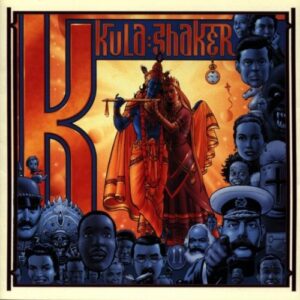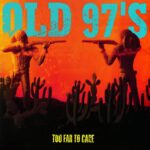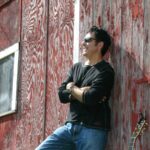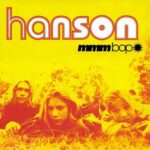 By Jae-Ha Kim
By Jae-Ha Kim
Chicago Sun-Times
November 15, 1996
The next wave of British music is riding on the slim shoulders of Kula Shaker frontman Crispian Mills.
Who?
Tall, thin and extremely blond, the 23-year-old singer-songwriter-guitarist (son of actress Hayley Mills) is the latest hottest thing across the Atlantic.
Of course the band’s popularity overseas doesn’t mean squat to Americans who have watched in bemusement as a slew of Brits (Blur, Elastica, Cast, Ash, Pulp) tried to infiltrate Smashing Pumpkins country. But if there’s any taste left in America, Kula Shaker will enjoy at least a modicum of success here.
Rich in texture, Kula Shaker’s music has the same dazy feel of early Stone Roses with a bonus. They layer Sanskrit chants and exotic instruments such as the sarod (a cousin of the sitar) over fierce guitars and dreamy vocals. The band, which also includes bassist Alonza Bevan, drummer Paul Winter-Hart and organist Jay Darlington, will perform most of its debut album “K” – when Kula plays Saturday at the Double Door. “K,” by the way, made its UK debut at No. 1 on the albums chart.
“We don’t really expect anyone to know who we are,” Mills said, phoning from the band’s tour bus after a gig in Berlin. “The shows have been doing really well so far and we’ve had a lot of sold-out shows in Europe, so we’re very pleased. Of course it’s important for us to have Americans like us, but I don’t think it’s anything that we can cram down your throats.”
Mills is pragmatic enough to know that the band’s phenomenal European success had as much to do with luck as with raw talent.
“I’ve been playing music nonstop since I was 16, and we didn’t get a record deal until 1995,” said Mills. “We released our first single in November, the second in March and the third in June, and things just went well. The album came out in September (in Europe – the album has just recently been released in America) and it went through the roof. But it’s not just about having the songs. It’s about being the right band at the right time. The timing’s been really important, and there’s a place for us now. We’re very lucky.
“When we think about everything that has happened to us, we realize that we haven’t got any control over what happens really. We’re not the type of band that demands that everyone buys our records. But we know we’ve got a good live act. We get people fired up and buzzing.”
An avid reader and world traveler, Mills’ cosmopolitan upbringing is evident on “K.” He speaks reverentially of the spirituality of the Far East – particularly India. Kula Shaker is named after an ancient Indian emperor, and not a fruity alcoholic beverage, as its moniker might suggest. And Eastern mysticism is sprinkled throughout the group’s songs, with Mills even singing in Sanskrit on the addictive “Tattva.”
“I’m certainly not fluent in Sanskrit,” Mills said. “It’s just something that I picked up in my travels and books I’ve read and people I’ve met. I wanted to do something with pop music that was a little different and I didn’t really think about the amount of success or failure we’d have trying it. I just thought it sounded good to have the sarod or whatever.”
They aren’t the first Western band to implement Far Eastern elements into their music. One of Mills’ heroes – George Harrison – introduced the sitar to rock audiences 30 years ago.
“We believed in our tracks, but I think we also expected the barrage of cynics to say we were just a gimmick, too,” he said. “There doesn’t seem to be too much apathy about us. People either love us or slag us, but we want to hit a nerve. I think the people who have given us positive feedback are bored with the predictability of music. There are a lot of really good guitar bands out there, which is kind of the identity for pop music. What we do still follows that pattern. It just veers off every now and again.
“We had a lot of demoralizing times where no one was at our shows, but we always knew we had a future ahead of us for lots of reasons – a belief in faith and destiny. . . .”
And?
“And the belief that we were good.”





